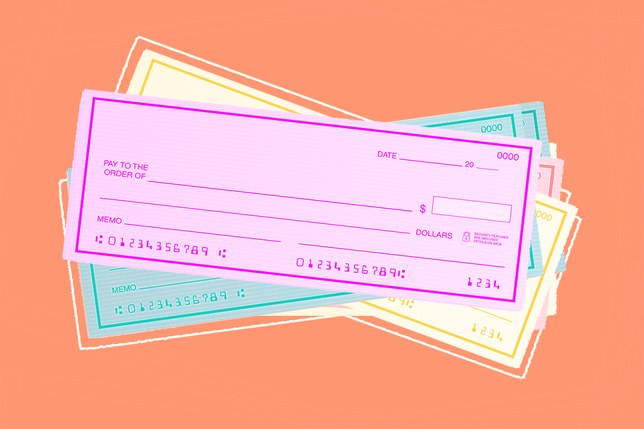When you live paycheck to paycheck, the days before the money goes to your account can leave you tossing and turning. You worry about the late payment on one bill, and whether you’ll have enough money to fill up your tank for the week. It’s a stress-inducing situation that affects people who live on government assistance all the way up to those who make six figures or more.
The problem with paycheck to paycheck living is that it’s hard to pinpoint its causes, and unfortunately, it’s even harder to break. The mentality surrounding the madness doesn’t help either. Many think that it’s normal – it’s not.
If you’re living paycheck to paycheck, it’s vital for you to know why you are, because that’s the only way you can break this vicious cycle.
1. Black Holes In Your Account
You go to the bank and the teller says you’re paying “x” amount of dollars per bank card transaction plus interest. Or maybe you have a subscription to almost every site, app and streaming site you can think of.
Those $5, $10 or $15 fees don’t seem like much because, in the grand scheme of life, they’re not. But when you have a bunch of these money drains in your account at once, very quickly, your funds will start to shrink before you even notice.
The sad part about black holes in your account is that they’re usually visible, staring right back at you if you look at your account statements.
The fix for black holes in your account is to plug them where possible. Get rid of accounts you’re not using, switch to interest/tax-free options and limit certain transactions altogether.
2. You Have Mixed Priorities
You want to travel. You want to invest. You want to splurge. You want it all. Unfortunately, doing it all at once is not possible, and trying to is a quick way to burn your hard earned cash.
Not knowing what to focus on in your personal and financial goals often means trying to accomplish them all at once. Not only is this physically, mentally and emotionally draining, it’s also a burden on your wallet.
The reasons for trying to finance every possible pursuit and goal possible often comes from a deeply rooted need to fit in. The fix, which is harder than sounds, is limit yourself to most important financial goals or necessary lifestyle choices. Don’t try to juggle more than you can toss. This brings us to our next point.
3. FOMO
You’ve probably heard this term get thrown at Millennials and young adults a lot. FOMO or Fear of Missing Out, often leads people to chase goals they don’t really care for, only because they’re afraid of future regret.
Possible triggers include Instagram posts of friends’ vacations or articles with titles like “5 Things You Should Do Before Turning 30”.
Unfortunately, these psychological triggers often push people to buy things they otherwise would ignore, and that their budget can’t support. As a result, they live for the weekends, but have little to fall back on during the week.
The fix here is to accept that FOMO is often based on personal biases and a lack of one’s accomplishments. It’s always easier to see what you don’t have or haven’t done as opposed to what you already have under your belt. Of course, overcoming FOMO takes time and effort.
4. You’re Not Paying Your Debts Down Fast Enough
Paying your debts down can feel like an optical illusion. At first glance, making bigger payments towards debts might leave you with less funds left over. But later on, the debt becomes less and less, faster, so that you eventually have more cash flow.
However, the minimum payment method is a sure-fire to keep your debts lingering. Worst of all, interest compounds on your balance so that you pay far more than you need to. Instead of gradually having more cash to yourself, you stay in a constant loop of paying off a balance that never seems to shrink.
So the antidote for this problem is to make more than the minimum payments, so that you free yourself from debt faster. The less time you spend in the red, the faster your outstanding balances will decline and the less interest you will pay.
5. No Emergency Fund For Days Off
A lack of an emergency fund isn’t a problem until an emergency happens. Many families who have enjoyed years of financial comfort end up at rock bottom after a difficult circumstance arises. The savings and earnings they kept now had to go towards recovering from some hardship, putting them in debt and leaving them with little left over.
An emergency can be very costly and it will set you back financially if you have to rely on your cash flow or savings to pay for certain expenses. This can easily set a family on a cycle of paycheck to paycheck living both in the short and long run.
The fix, in this case, is prevention – start building an emergency fund so that you’re not scrambling and overwhelmed if an unforeseen event affects you.
Paycheck to Paycheck Living Is Common But Not Normal
It’s true that millions now live on a paycheck to paycheck cycle. But that doesn’t mean it’s normal or acceptable. Just looking at the causes alone shows that this lifestyle comes from poor financial choices or conditions that need to be addressed.
If you notice any one of the above-mentioned issues with your finances, make the effort to keep them under control or to resolve them completely. After all, a paycheck to paycheck lifestyle never solves itself.

